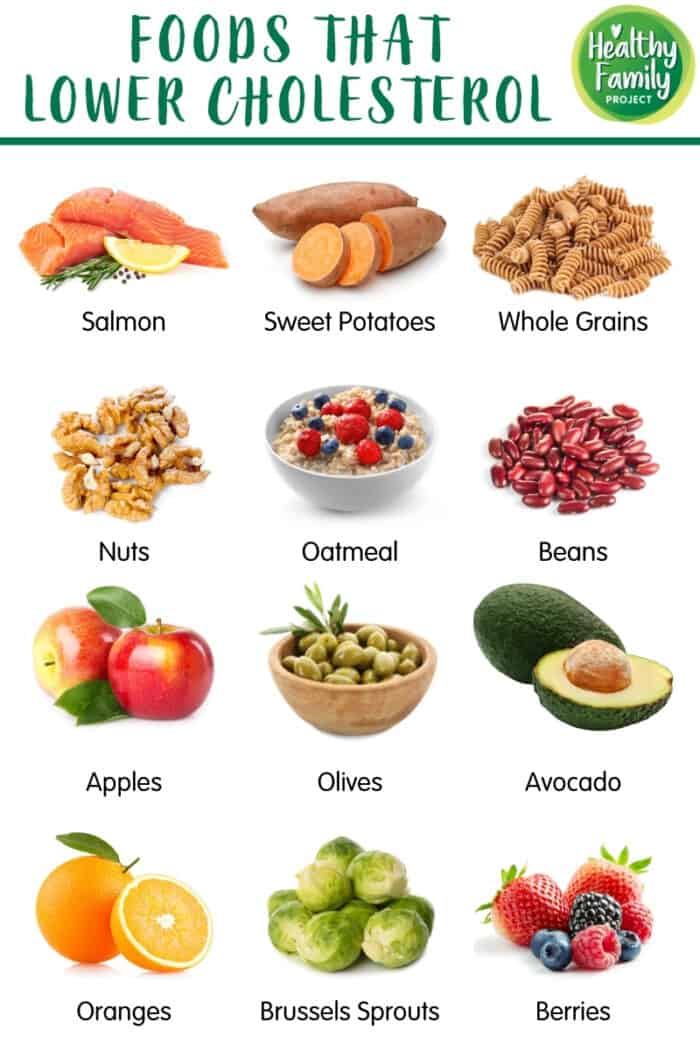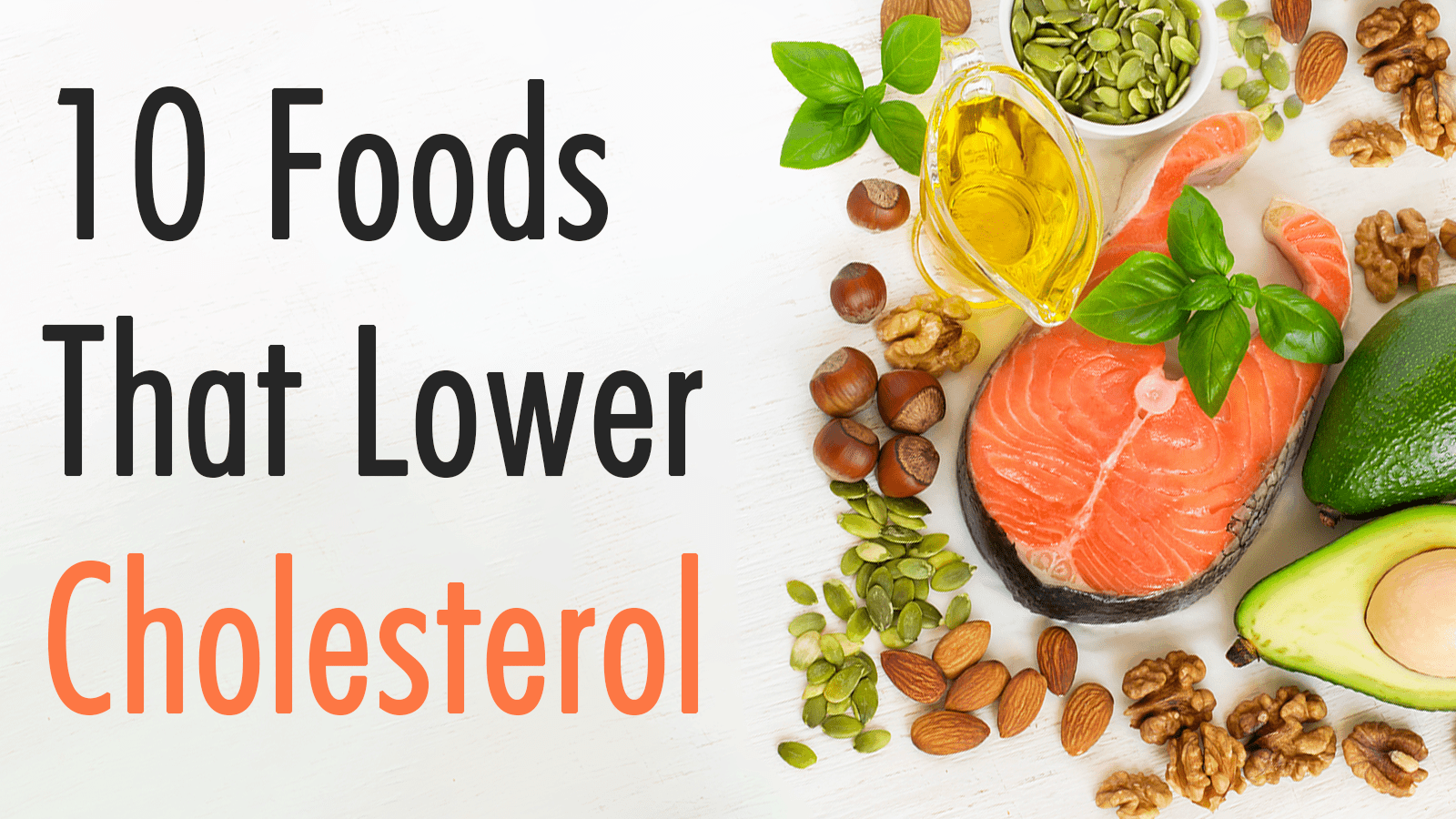Healthy Foods to Lower Cholesterol Levels
1. Oats
Oats are a great source of soluble fiber, which can help reduce LDL or "bad" cholesterol levels. Eating a bowl of oatmeal for breakfast or adding oats to smoothies or baked goods is an easy way to incorporate this heart-healthy food into your diet.
Benefits:
- May lower LDL cholesterol levels
- May reduce the risk of heart disease
- May improve insulin sensitivity
Drawbacks:
- May cause bloating or gastrointestinal discomfort in some individuals

2. Nuts
Nuts are rich in monounsaturated and polyunsaturated fats, which can help lower LDL cholesterol levels. Eating a handful of nuts as a snack or adding them to salads or yogurt is an easy way to incorporate this heart-healthy food into your diet. However, it is important to watch portion sizes as nuts are also high in calories.
Benefits:
- May lower LDL cholesterol levels
- May reduce the risk of heart disease
- May improve insulin sensitivity
Drawbacks:
- May be high in calories
- May cause gastrointestinal discomfort in some individuals

3. Fatty Fish
Fatty fish such as salmon, mackerel, and sardines are rich in omega-3 fatty acids, which can help lower triglyceride levels and reduce the risk of heart disease. Eating fatty fish at least twice a week is recommended to achieve these benefits.
Benefits:
- May lower triglyceride levels
- May reduce the risk of heart disease
- May improve brain function
Drawbacks:
- May contain mercury or other environmental toxins
- May not be suitable for individuals with fish allergies

4. Avocado
Avocado is a great source of monounsaturated fats, which can help raise HDL or "good" cholesterol levels and lower LDL cholesterol levels. Adding avocado to salads or using it as a substitute for mayonnaise or butter is an easy way to incorporate this heart-healthy food into your diet.
Benefits:
- May raise HDL cholesterol levels
- May lower LDL cholesterol levels
- May reduce the risk of heart disease
Drawbacks:
- May be high in calories
- May cause gastrointestinal discomfort in some individuals

5. Beans
Beans are a great source of soluble fiber, which can help reduce LDL cholesterol levels. Incorporating beans into soups, salads, or as a side dish is an easy way to incorporate this heart-healthy food into your diet.
Benefits:
- May lower LDL cholesterol levels
- May reduce the risk of heart disease
- May improve insulin sensitivity
Drawbacks:
- May cause bloating or gastrointestinal discomfort in some individuals

6. Dark Chocolate
Dark chocolate is rich in flavonoids, which can help improve blood pressure and reduce the risk of heart disease. However, it is important to choose dark chocolate with at least 70% cocoa solids to achieve these benefits.
Benefits:
- May improve blood pressure
- May reduce the risk of heart disease
- May improve brain function
Drawbacks:
- May be high in calories
- May cause gastrointestinal discomfort in some individuals

7. Fruits and Vegetables
Fruits and vegetables are rich in fiber, antioxidants, and other nutrients that can help lower cholesterol levels and reduce the risk of heart disease. Eating a variety of colorful fruits and vegetables is recommended to achieve these benefits.
Benefits:
- May lower LDL cholesterol levels
- May reduce the risk of heart disease
- May improve overall health and well-being
Drawbacks:
- May be expensive or difficult to find in some areas

FAQ
1. How much oatmeal should I eat to lower cholesterol levels?
It is recommended to eat at least 3 grams of soluble fiber from oats or other sources to achieve cholesterol-lowering benefits. This is equivalent to about 1.5 cups of cooked oatmeal.
2. Can I eat nuts if I have high cholesterol?
Yes, nuts are a heart-healthy food that can help lower cholesterol levels. However, it is important to watch portion sizes as nuts are also high in calories.
3. Can I eat fatty fish if I am vegetarian?
No, fatty fish is a source of omega-3 fatty acids that is not found in plant-based foods. However, there are vegetarian sources of omega-3 fatty acids such as flaxseed and chia seeds.
4. Can I eat dark chocolate every day?
While dark chocolate can provide health benefits, it is important to consume it in moderation as it is also high in calories and sugar. Eating a small amount of dark chocolate (1-2 ounces) a few times a week is recommended to achieve these benefits.
Conclusion
Incorporating healthy foods such as oats, nuts, fatty fish, avocado, beans, dark chocolate, and fruits and vegetables into the diet can help lower cholesterol levels and reduce the risk of heart disease. It is important to choose a variety of foods and watch portion sizes to achieve these benefits.
